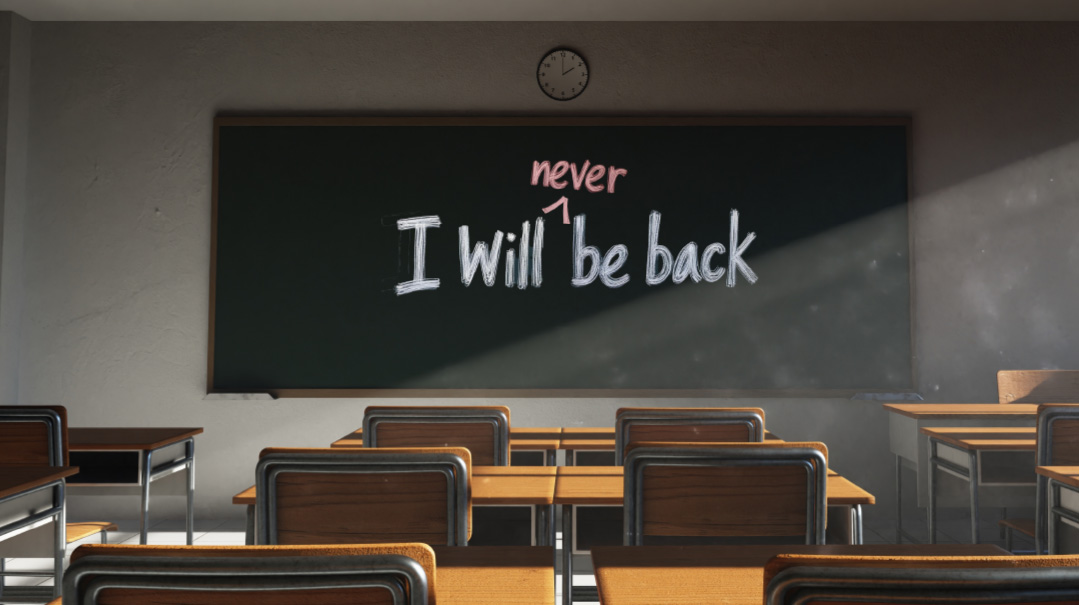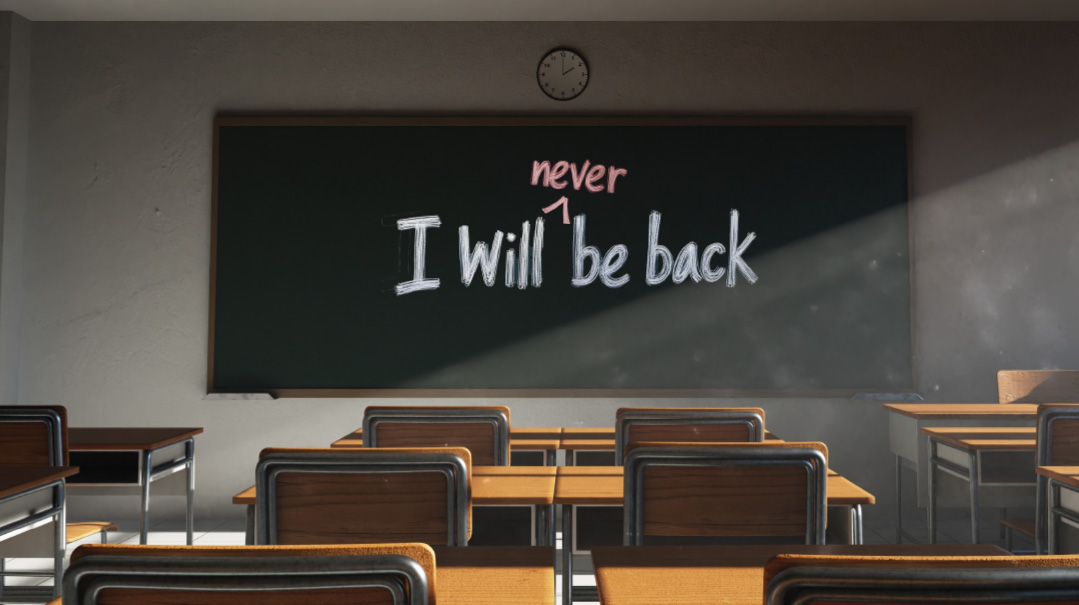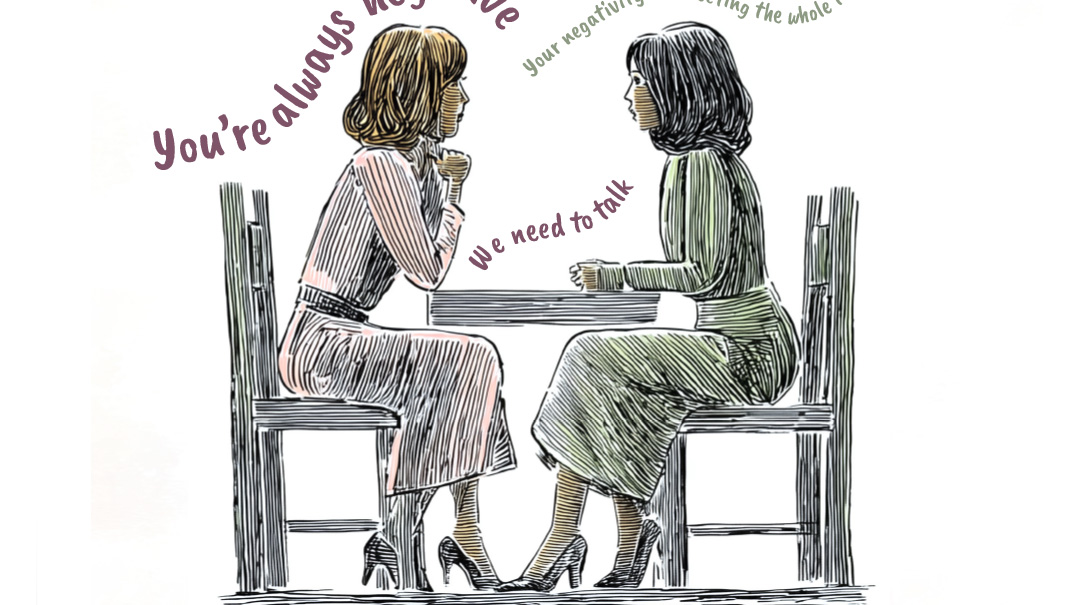Do Good Fences Make Good Relationships?
| November 14, 2023“Boundaries” have become a catchall term for just saying no whenever we feel like it

and I think it’s incredible that therapy has become so accepted as a tool for growth. Yet there are times when concepts and ideas are taken out of context and misconstrued, tainting something glorious.
I don’t intend to blame therapists, clients, or members of our communities. Yet there are far too many times when therapeutic terms, phrases, and concepts are used at odds with Torah hashkafah, and sometimes even in contradiction to the very purpose of these ideas.
A client sat with me and discussed a recent story.
“I was on the phone with a friend, venting to her,” she started. “I’d gone to pick up a package from a different friend, and while she told me she’d be home when I got there, she wasn’t.
“I was seriously annoyed. ‘She should’ve let me know,’ I huffed.
“My friend responded, ‘You need better boundaries. You can’t let her take advantage of you. Send her a text saying: I came and you weren’t here. Since you told me you would be here and I came all the way, I think it would be correct and appreciated if you brought the package to me.
“I sent the text,” continued my client, “and this was the reply I got: Really sorry, had to run to pick up inhaler for baby, not breathing well. Wish I could’ve been there. If I can bring it to you I for sure will. Otherwise, I’ll try my best to let you know when I’m home. Sry thanx.
“I looked at her text and realized that maybe I’m not doing something right. Maybe she had proper boundaries, while the text I sent was an excuse to be tough.”
I listened, appreciating that she was trying to figure out the right response to the situation, without mindlessly swallowing the modern narrative of boundaries and self-protection.
Sometimes we take boundaries too far. Therapy. Boundaries. These have become very popular buzzwords these days. And perhaps they should be. Therapy is a very helpful and often necessary tool. Healthy boundaries are necessary to navigate everyday living. And in situations in which people are dealing with others who are unsafe, abusive, or struggling with mental illnesses, strong boundaries can be lifesaving. I know; I’ve seen it time and time again.
Still, sometimes these things get misused and abused.
“Boundaries” have become a catchall term for just saying no whenever we feel like it. Parents ask you to come visit? “No, it just doesn’t work for me and my family right now.” Friend’s kids acting like kids? “This isn’t working out, you need to leave now,” (said in front of others).
In a situation of severe pressure, or regarding certain people or behaviors, extreme measures may be necessary. There are times when people cannot go to their parents often or need to say no to unreasonable requests. But when parents ask children to visit at a reasonable time and location (without a trauma history or personality disorder situation), it’s okay to push yourself a little. There’s still a concept of kibbud av v’eim. There is a value in doing something for your parents or someone in need. There is merit to being nice to neighbors and it’s assur to embarrass them.
And think about it… do you want to be the kind of person who only does things for your own convenience? Are your actions aligned with the values of giving to others and appreciating your parents?
So many clients bring up the painful reality of estranging from parents. While I never advise either way, I see that there are times when it’s necessary to make strong boundaries and times when the word boundaries is just an excuse to avoid dealing with family relationships.
A friend of mine was upset at her sister about something very minor. She decided to boycott her sister’s son’s bris under the guise of boundaries, sending a text that it “didn’t work for her and her family to come.”
She felt that if her sister had hurt her, erecting proper boundaries would mean she wouldn’t allow her sister to interact with her until she issued a proper apology. But that’s not a boundary. It’s a way of jumping up and defending one’s hurt feelings — a reaction and not a response.
Putting on my half-friend, half-therapist hat, I said, “Shaindy, if you need to take a pause in a relationship, that’s okay. But there are ways to work through a relationship with someone who hurt you without amputating them from your life. Boycotting a simchah is not actually a boundary. What you really want is for her and everyone else to know that she wronged and hurt you.”
I thought a bit more about my friend’s struggles, recognizing where her self-protective instincts stemmed from. Perhaps she couldn’t get over this hurt; it triggered such a deep-rooted history between her and her family.
“If you really can’t attend,” I said cautiously, “maybe you can say, ‘Right now I’m not in a place where I could come, but I’m sorry and I love you and wish I could be part of your simchah.’
“But just coldly texting It doesn’t work for me is hurtful and really doesn’t encourage dealing with what happened between you. Yes, now you got in the last word, but what did it accomplish?”
We don’t always have to say exactly what’s on our minds… certainly not in the heat of the moment. And hoping to hurt the other person out of spite is certainly not in line with Torah values.
I’ve seen so many girls explore boundaries in their marriages and get lost. They hear about it from friends or someone who claims to be an expert and then feel afraid to engage in a heated discussion (okay, an argument) in which both parties express themselves.
Firmly telling your husband that he doesn’t understand your feelings and doesn’t care about you when he comes home late is not called maintaining boundaries. Hanging up when a conversation is uncomfortable, without explaining, isn’t either. Boundaries are not ways to yell at people while securely keeping yourself in a protected bubble oblivious to the role you play in the situation.
Healthy boundaries don’t look like verdicts handed down without a trial or jury — “I am really upset at what you said/did. That wasn’t okay.” You might want to work things out yourself — dan l’chaf zechus can go a long way here — or discuss it with the other party, but give them a chance to explain! “Chaim, I was thinking about what happened today. It was hard for me that ___. What was it like for you?”
Yes, it’s okay to say no sometimes. We don’t have to do whatever is asked of us. Yet reflexively saying no without thinking or caring about others is just wrong from a Torah viewpoint, and from a mental health perspective as well. If we’re being disrespected, we don’t have to listen, we can even stand up for ourselves, but there are ways to do that (and only specific situations that call for it).
Boundaries, when used correctly, are ways to help identify and strengthen yourself so that you understand who you are regardless of what other people say or feel. It doesn’t mean we don’t care about others or can’t listen to what they say. It’s actually the opposite. When we feel okay with ourselves, we can stop feeling defensive and actually hear the other person. We then can decide whether we want to absorb their message or not while responding softly and understandingly (in situations in which firmness isn’t necessary).
I once learned an idea in training. Every person can create an imaginary curtain or shade — think thick red drapes, vertical blinds, or roller shades. We can pick them up, let them fall, open them just a tad, or install security cameras to help us really feel that boundary. While the shades are closed, we can use that time to check in with ourselves, and then we can open them to let the other person in as we deem appropriate, depending on the circumstances.
What would this look like? Imagine your mother tells you something hurtful. “No wonder you didn’t get that job. You really aren’t a match for the position they’re looking to fill.”
Without a boundary, you fall apart, yell at her, or doubt yourself. You become a puddle without a defined shape, like an amoeba without definition.
Instead, you take a deep breath and pull down an invisible shade. You remember the wonderful things you have inside of you and remind yourself that you know who you are regardless of what others say or do.
Then you check in with your values to consider how you would like to respond.
Finally, you open your eyes and look at your mother. You allow yourself to acknowledge what she is saying — maybe you aren’t the typical prospective applicant for that position. Yet you also know that you’re okay and you weren’t crazy for trying. And you allow yourself to feel. Ouch, it hurts to hear her say that.
There is no yelling, but inside, you have a boundary so strong you don’t need yelling to protect or justify you. Because you are you and no one can take that away from you.
Boundaries used correctly enhance relationships; let’s use them to draw closer to each other and not to lock others out.
Note: Details of scenarios have been altered to protect clients’ privacy.
(Originally featured in Family First, Issue 868)
Oops! We could not locate your form.







